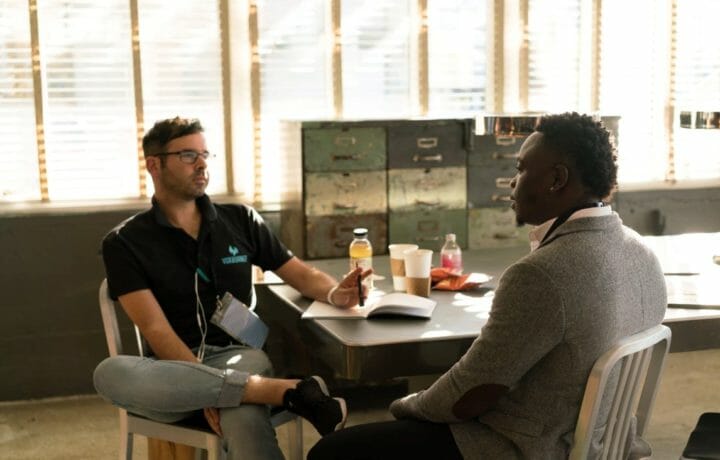“Water… Water… everywhere, the fate of the city is sealed.” Similar cries were heard throughout the day on August 29, 2005. Katrina had taken the City of New Orleans. The wind was bad, but when the levee breached, the floodwaters were horrific. Eighty percent of New Orleans was underwater. St. Bernard Parish was completely submerged as billions of gallons besieged over 100,000 homes. Change had come to New Orleans and the city would never be the same again.
Hurricane Katrina Aftermath Needed Leaders
Rebuilding became the focus. Not surprisingly, an army of leaders, project managers (PM), and engineers were called upon to rebuild a stronger levee system. Many active duty and former military personnel answered the call to assist in the reconstruction of a devastated city. Former Vietnam-era Sergeant John Bronson found himself in the center of the reconstruction effort, as he had become a lead project manager for the levee system rebuilding effort.
Like many young men and women in 1967, Sergeant John Bronson volunteered for service. Many years after his Army effort, John worked his way through civilian supervisory and project management positions. By 2005, John was busy performing project management for a major corporation. Like most of us, he watched the weather closely during Hurricane Katrina and had no idea that such devastation would be forth coming. Similarly, John was completely unaware of his imminent involvement with the reconstruction of New Orleans.
From Military to Project Manager
John was selected to be the senior project manager for the levee effort. Why? He believes his success is derived from basic skills learned in the military. Along with his desire to excel, he believes that his project skills grew their roots while working with the 7th Infantry Division. John’s number one axiom is that a project manager must understand every TEAM member’s job. Additionally, John understands the ability to adapt to the environment is THE critical element. Finally, John learned how to interview well and accurately portray his skills.
MIlitary Traits in Demand
Traits such as leadership, discipline, flexibility, and planning are common to the military experience. These attributes are vital in civilian life, just as they are in military life. The fantastic news is that you have these skills by virtue of performing your mission in the Service. Just like John, you have the foundation for greatness, regardless of your career field.
The other great news is that civilian corporations know your capabilities. Finding untapped talent to fill in-demand roles is a top priority for civilian employers. Hiring military is a successful strategy for companies and corporations. Not only do they gain high-performing employees with low turnover, but companies also earn goodwill from customers and receive a public-image boost through commitment to hiring more military veterans. Even better – you already have a security clearance when you leave the military.
But It All Comes Down to the Interview
Unfortunately, during interviews, military personnel do not elaborate or boast about their responsibilities or accomplishments. This makes translating skill sets to the interviewer a challenge. When recently asked during an interview, “What was your job in service?” the soldier responded, “I was a tanker.”
However, if the human resources or hiring manager dove deeper, or if the soldier had elaborated, the interview would have gone a very different direction, and much more would have been revealed about his Service. They would have learned he was responsible for supervising more than 40 soldiers, along with the welfare and livelihood of every one of them. He knew how to manage and supervise in difficult, if not horrific environments. If they came under fire and anyone was wounded, he was responsible for ensuring the injured received medical attention. He trained his TEAM to standard.
Further, he was assigned millions of dollars’ worth of equipment and he was responsible for the movement, inventory, loading and unloading and maintenance of every system and the associated technology. He also trained everyone under him to perform these duties, as he knew that ever TEAM member needed cross training – in case things go wrong, on a bad day.
There were many other duties he performed, often in a grueling environment. This type of response indicates the true scope and depth of the soldier’s job skills, his roles, and responsibilities. Obviously, he was far greater candidate and much more capable than, “I was a tanker.”
Humility is an important characteristic, but you have to communicate your experience in an interview. Don’t be so quick to downplay your previous experience or assume someone won’t understand.



